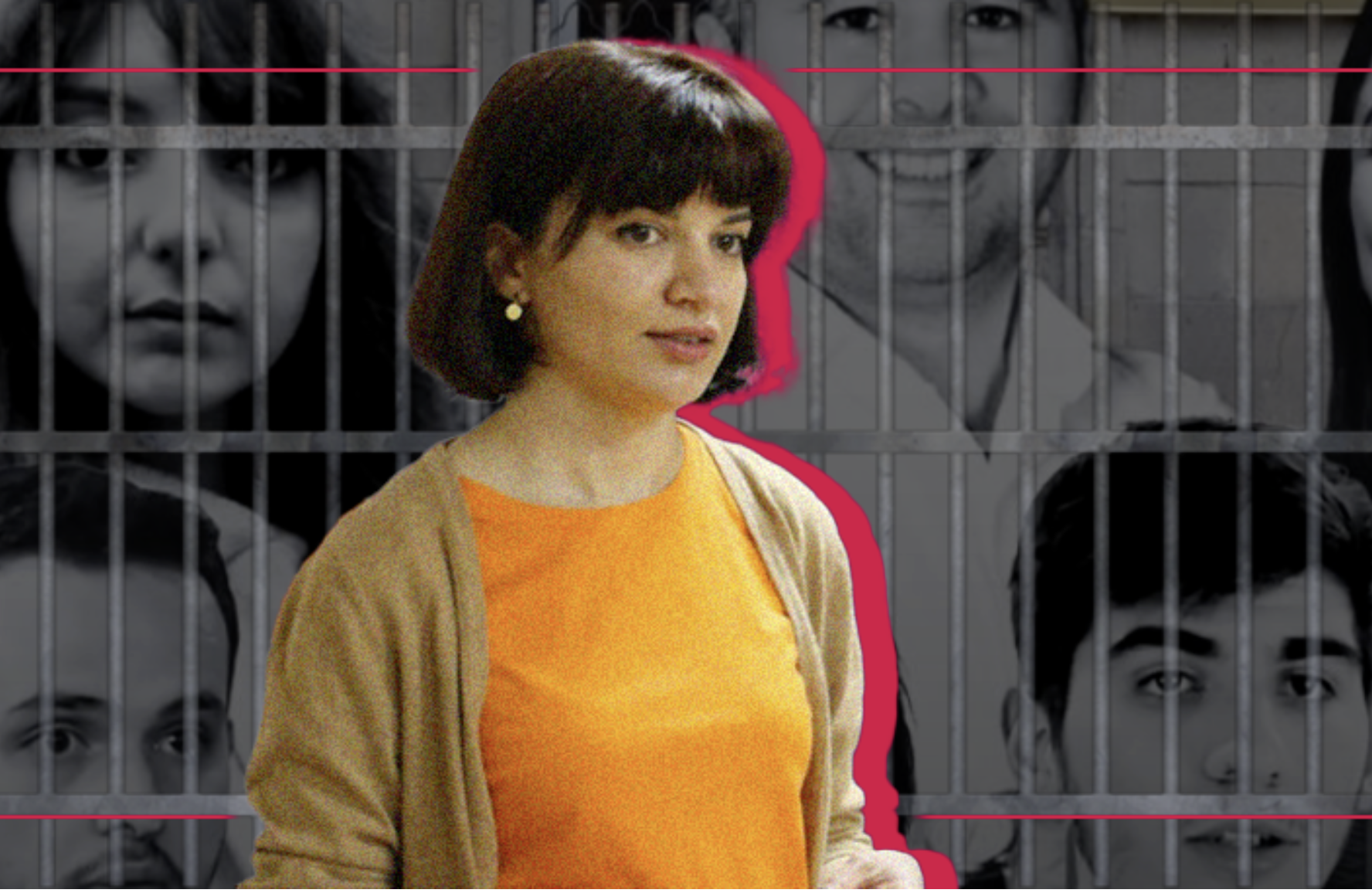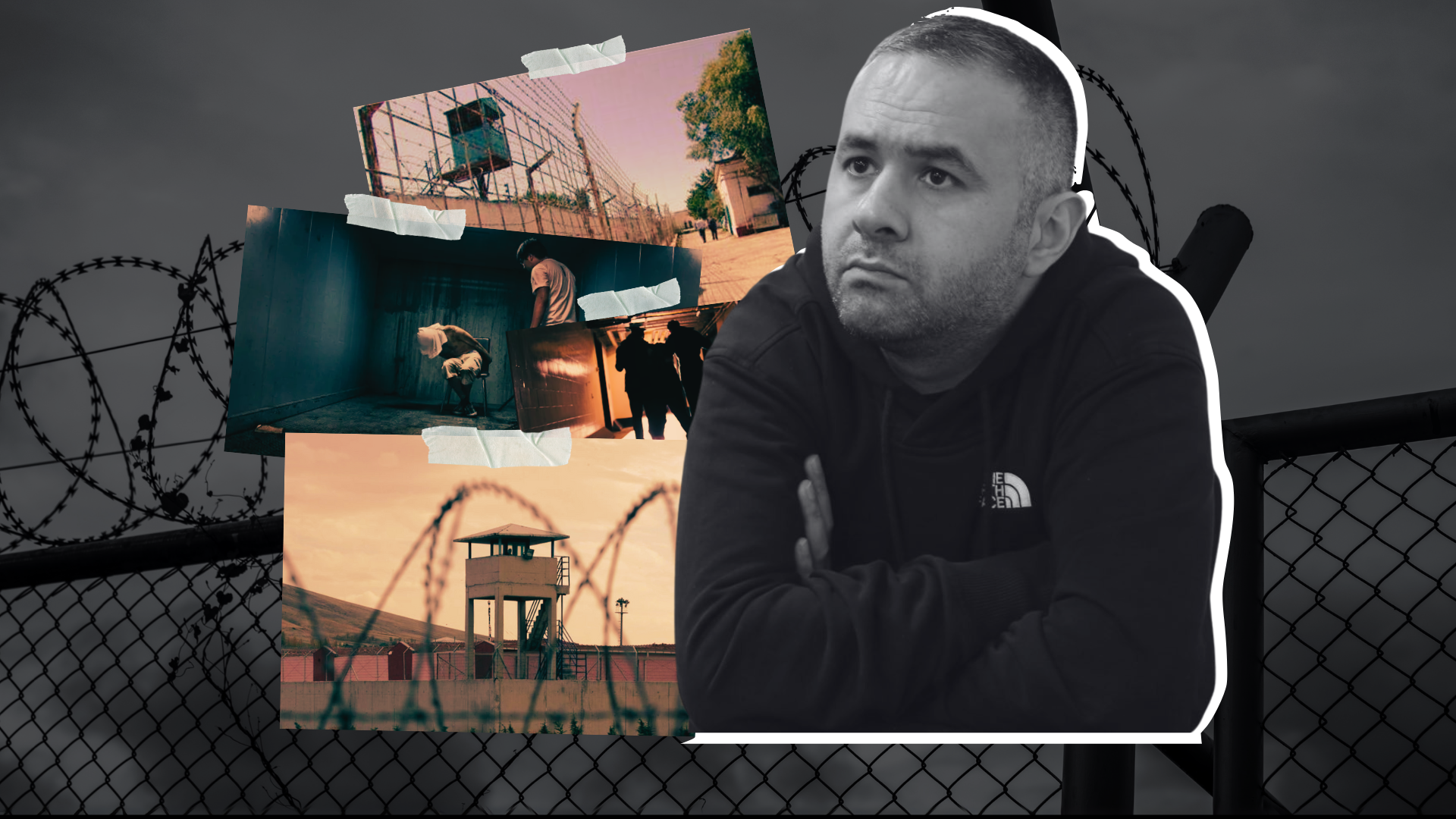When I was speaking with my lawyer at the Istanbul Airport, I was already certain that if I returned to Baku, I would be arrested. My friends were also informing me that plainclothes police officers were lingering around my home. After that, I messaged the currently imprisoned staff members of “Abzas Media” and my mother, asking them to prepare for this arrest.
As soon as the plane landed in Baku, police officers met me at the exit door. Without even allowing me to go through passport control, they detained me in front of my friends using a side door of the plane.
What my lawyer had said came true – I returned to the country and was arrested.
After my arrest, I would frequently hear this question – why did you come back?
As someone involved in the management of “Abzas Media,” I could not sit safely in a secure location while our colleagues were being summoned by the police and arrested one after another. By that point, “Abzas Media” director Ulvi Hasanli had been arrested, and our colleague Mahammad Kekalov had been forcefully taken from his home. If the price of our corruption investigations was imprisonment, then we had to face that – not run away. Running away never solves any problem anyway.
One of the government’s strategies is to force independent journalists and critics into exile — to isolate them from society and make them feel alienated. Just because we do critical journalism doesn't mean the government can tell us we don’t belong here. In a country already dependent on imports, the truth should not become dependent on foreign sources. We want to live in this country, work in a free media environment, report truthfully, and live without feeling threatened. That has been the desire of the 29 journalists currently imprisoned. We wanted to do our job freely, without threats or pressure. But for the government, every question is seen as interference. They don’t want interference — they want obedience without questions.
They offer journalists houses, honorary titles, and high salaries in exchange for turning a blind eye to the wealth looted from the people. We journalists refused those offers – that’s why we’re in prison. Because we know that our profession is about defending society’s interests before the government, alerting people to the manipulations of politicians, and ensuring public oversight of the government.
But the Azerbaijani authorities have drawn red lines for journalists. Under no circumstances should the illegal actions of the president and his family be discussed. Rather than stopping at those red lines, we chose the red stripes of prison. Our prison ID cards have three red stripes, marking us as dangerous inmates who should be closely monitored. But even in prison, they couldn’t monitor us – our first investigation was into the assets and illegal tenders of the detention center chief. Once we entered the prison, which the government wanted to keep off-limits, we exposed the torture, election fraud, and corruption happening inside. After our reports, torture in the women’s section stopped, and a portion of goods meant for prisoners was finally delivered to them. But we will continue writing until the law is properly enforced. Almost every article we publish receives positive feedback. It helps us feel we are still useful, even in prison. But when we hear that a protest happened in the city and there was no journalist to cover it, we are disheartened. Now, citizens facing injustice cannot find any free media or journalist to voice their concerns. They are left alone with the violations they face. Because the journalists who would have reported it are in jail. And it’s not just journalists – experts, activists, NGO representatives, opposition figures, and religious individuals are all condemned to a life behind bars
Currently, there are nearly 400 political prisoners in Azerbaijan.
One sentence we often hear from our visiting family members and lawyers is – “you’ve been forgotten.” This is the result of the inaction of international organizations with influence over the government, and Western leaders who claim to uphold democratic principles but turn a blind eye to nearly 400 political prisoners in the country. They just say they are “concerned” about the arrests and move on. But their “concern” does not bother Ilham Aliyev. That’s why political arrests continue in Azerbaijan.
After meeting with Ilham Aliyev, Western leaders say in interviews that they discussed energy, security, and human rights issues with the president. As the order of those topics shows, human rights come last. It is not a priority for them.
And since Aliyev faces no real pressure, he can sentence Abzas journalists to a total of 59 years and 6 months in prison. Because Western organizations and leaders keep shaking the hand that puts handcuffs on his critics.
Letter from Sevinj Vagifgizi sent to Reporters without Borders (July 2025)





